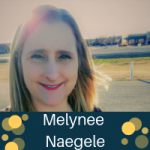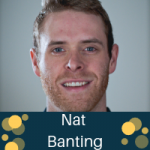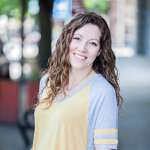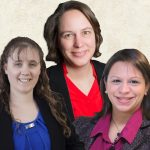Welcome to Your ALL-ACCESS pass to the Build Math Minds Virtual Summit!
I hope you are as excited as I am for these fabulous presentations!!!
This page gives you details about each presentation and will link to the session page (links are inactive until the session goes live).
Summit Schedule

Keynote: General Interest
5:00 – 6:00pm
Session Description
A Professional Learning Community is vital for educators who wish to improve their pedagogy and utilize best practices. Excellent PLCs utilize inquiry and research to inform their teaching practices and collaborate with the goal of improving student learning and outcomes. Social media, especially Twitter, provides an excellent platform for educators to create connections, engage in inquiry driven learning and to share and support one another in their pursuit of exemplary continuous learning. Please join us to learn how you can harness Twitter as your Virtual PLC!

Keynote: General Interest
8:30-9:30 am
Session Description
This fast-paced, example-laden presentation will explore the role of rebels and apply these characteristics to our roles as mathematics leaders who arm themselves with the skills, arguments, and data to ensure policies and practices that support the adults and keep the focus on what is best for our students.

General Interest
9:30-10:30 am
Session Description
Resilience – the capacity to bounce back from stress and challenge – is one of the most important life skills children need to thrive in a changing environment. Research shows that an individuals level of resilience is more important than their IQ when it comes to long term success. Yet resilience can sometimes feel like a tricky concept to share with children. In this session, we will simplify exactly what resilience is, how it’s developed, & give you practical tools & tips to build resilience in your children.

Math Coaches
9:30-10:30 am
Session Description
Interested in building lesson study teams from the ground up, either within schools or across districts, and sustaining those teams for multiple years to deepen teachers’ pedagogical content knowledge and drive student achievement forward? Over the past 3 years, we have seen amazing growth in both individual teachers and in multiple school-wide teams enacting the best teaching practices that research defines to engage students in the Standards for Mathematical Practice and to develop a deep understanding of the most important mathematical content. Let us share with you what we have learned along the way so you can get lesson study going with your teachers, or enhance the cycles that you are already facilitating.

General Interest
10:30-11:30 am
Tracy Johnston Zager
http://tjzager.com/
Not Just Answering Someone Else’s Questions: Making Math Class More Like Mathematics
Session Description
Mathematicians say mathematics is full of wonder, discovery, and curiosity. Most students use different words to describe it. I’ve studied the discipline of mathematics and the realities of math classes, seeking out colleagues who close the gap between the two. What can we learn from teachers whose students ask and answer their own math questions; who pose problems as well as solve them? We’ll explore practical strategies for teaching mathematical content while promoting mathematical curiosity and inquiry.

3rd-5th
10:30-11:30 am
Session Description
Area models are an important learning tool for young students, but are almost always presented as neatly-sectioned bars or circles (sometimes even pre-labeled). This suppresses many opportunities for students to be active sense-makers with fractional ideas. This webinar explores a variety of images and activities that get inventive with the traditional area model in order to accentuate and extend students’ understanding of fractions. We will work with a variety of these “Fraction Talk” images, and see how teachers from across the globe have contributed to a growing collection of resources. Connections to standards, common classroom structures, prompts to spark discussion, examples of student thinking, places to find classroom resources, and ways to create your own images will all be discussed. Come play with the potential of the area model!

Lunch Session: General Interest
11:30 am-12:15 pm
Session Description
Learn how to use rich math problems that will simultaneously challenge students looking for more rigor while remaining accessible to your students who are struggling. These problems, at multiple Depth of Knowledge (DOK) levels, begin with the same task and end with the same answer yet allow for multiple strategies. This helps facilitate classroom conversations about how the students’ methods relate to each other. Participants will complete math tasks, watch videos of students solving them, and leave with access to hundreds of free problems.

PreK-2
12:15-1:15 pm
Session Description
Too often we push our students directly to abstract algorithms without first giving students the prerequisite experience with models such as empty number lines, number bonds, arrow method, area model, etc. Teachers will learn how to use these models to make math meaningful for their students thus increasing number sense and fluency.

General Interest
12:15-1:15 pm
Session Description
Many special educators shy away from using Cognitively Guided Instruction (CGI) in their classrooms because teaching word problems is hard when students have language processing delays or they resort to teaching “keyword strategies.” However, CGI actually inherently utilizes many strengths of students with disabilities. This session will explore CGI through a strengths-based lens while integrating supports that keep the cognitive demand high, but accessible.

Closing Session: General Interest
1:15-2:15 pm
Session Description
The practices of Noticing and Wondering can help all students generate mathematical ideas and make connections between them. Noticing and Wondering pave the way for the development of other problem solving strategies and support a classroom culture that gives every student a way to contribute mathematically and treats mathematics as a creative process.

Keynote: General Interest
8:30-9:30 am
Session Description
Highlighting relevance and connections to the real world are often seen as the most effective strategies for engaging students in difficult mathematics, but both strategies are limited and can fail in crucial ways. We’ll add strategies to our repertoire, looking at research-based methods for “turning up the dial” and “creating constructive controversy” instead.

PreK-2
9:30-10:30 am
Session Description
It’s a simple, and very complex, idea that great teachers do and do well. Genuinely listening to students can yield incredible opportunities for teachers to not only connect with their students, but also increase the quality of teaching and learning happening in the classroom. We’ll consider the instructional opportunities that can enhance the opportunities for truly listening to our students and practice listening to students through what they say and what they do.

General Interest
9:30-10:30 am
Joe Schwartz
@JSchwartz10a
Reduce, Reuse, Recycle: Making Productive Use Out of Classroom Games and Activities
Session Description
Many of the classroom games and activities we employ are one-offs; we use them once or twice and they’re never seen again. With some very easy tweaks, these games and activities can be transformed to provide opportunities to explore multiple content and practice standards with a depth and richness to be experienced many times over.

PreK-2
10:30-11:30 am
Christina Tondevold
www.BuildMathMinds.com
3 Reasons Kids Still Count on Their Fingers and How to Help Them
Session Description
Christina will help you to see how slowing down and focusing on particular number sense ideas will help your students become more flexible and fluent with their addition & subtraction facts. We will investigate the phases kids go through as they work towards fact fluency and why kids get stuck in the counting phase. You’ll also learn how the manipulatives you use can hinder (or help) kids’ ability to move through the phases and why you should stop teaching strategies like “doubles” and “make 10.”

General Interest
10:30-11:30 am
Session Description
How can we develop conceptual understanding of the underlying structures of word problems to help students become proficient at solving them? Take out the numbers! In this session, I’ll share a simple yet effective instructional routine that scaffolds student understanding of word problem types and promotes sense making prior to computation.

Lunch Session: General Interest
11:30 am-12:15 pm
Session Description
Math Running Records is an assessment system that is gaining momentum across the country and Canada. Running Records are the GPS of Fact Fluency. It is a system (much like literacy running records) to assess where students are and where they are going next. The premise of Math Running Records is that fluency is a 4 legged stool – accuracy, flexibility, efficiency and automaticity. For too long, speed has hijacked fluency, Math Running Records is a way to address this.

PreK-2
12:15-1:15 pm
Margie Pearse
@pearse_margie
How to modify your teacher’s manual so that students are doing most of the thinking
Session Description
There can be a disconnect between the constraints forced upon elementary teachers when teaching math and what it really takes for students to develop good mathematical reasoning and number sense.
Many teachers feel the pressure of having to follow a teacher’s manual with fidelity. Some are even told to read from the script provided and keep all students on the same page at the same time across the grade.
There are ways you can still follow that teacher’s manual and deliver lessons that are engaging, thought-provoking and grounded in highly effective math pedagogy.
In this presentation, you will learn how to modify your teacher’s manual so that students do most of the thinking and the work.

General Interest
12:15-1:15 pm
Session Description
Participants will learn the characteristics of what we refer to as “juicy tasks” that engage young mathematicians in making sense of profound mathematics, allow a range of reasoning strategies, and build on students’ daily experiences. We will discuss strategies for identifying and creating juicy tasks for teachers’ own classrooms.

Closing Session: General Interest
1:15-2:15 pm
DeAnn Huinker
@dh11235
Principles to Actions: Building a Teaching Framework with High-leverage Mathematics Teaching Practices
Session Description
Envision the best mathematics lesson you ever taught. What aspects of your teaching made it so effective for student learning? The National Council of Teachers of Mathematics identified a set of eight high-leverage mathematics teaching practices in its publication, Principles to Action: Ensuring Mathematical Success for All. This session provides an overview of the teaching practices and shares some new NCTM resources to support strengthening your implementation of the teaching practices in mathematics classrooms.

Keynote: General Interest
8:30-9:30 am
Session Description
What does it mean to build powerful numeracy? How can we build powerful numeracy in ourselves and our students? Why do we want to? Just for fun or does it lead to success in higher math? In this session, we’ll discuss a progression from counting strategies to additive thinking to multiplicative thinking. We’ll look at how the traditional algorithms can actually work against us and what we can do about it.

PreK-2
9:30-10:30 am
Session Description
With all of the math routines out there, how can you figure out which to use? Join, Greg as he shares 3 activities that strengthen students’ number sense. Plus, learn tips for increasing student talk as you guide students to the next level of numeracy. Grade level geared toward- Kinder through 2nd grade

General Interest
9:30-10:30 am
Session Description
Animation is a powerful tool for promoting rich, in-depth, authentic mathematical discourse. In this presentation, Steve Wyborney provides many examples of animated scenarios and resources which have been utilized in classrooms around the world to promote discourse.

General Interest
10:30-11:30 am
Session Description
Risk taking is an essential disposition of mathematicians, and a key component of a growth mindset. Students must leave their comfort zones to make conjectures, embrace challenges, persevere, and learn from mistakes. In this session, we will focus on instructional decisions and teaching moves that promote risk taking and teach mathematical courage. Participants will analyze discourse, student work, video, and written feedback from several classrooms, and begin adapting strategies for their own teaching contexts.

3rd-5th
10:30-11:30 am
Session Description
Would you like to increase students’ conceptual understanding, fluency, and perseverance, while they have fun and develop productive dispositions about mathematics? As we explore games and puzzles, experience how question strategies, assessment, and management strategies can transform the use of games and puzzles in your classroom.

Lunch Session: General Interest
11:30 am-12:15 pm
Session Description
We all want our kids to develop number sense, right?! Let’s try out some tasks that we can use to promote reasoning and number sense through estimation. You will leave with TONS of estimation tasks that you can begin using right away, and yes they are made for our primary students!!!

PreK-2
12:15-1:15 pm
Marialuisa Di Stefano, Kristy Litster, Beth MacDonald
The Interdependence of Language and Math: K-2 ELs Solving Inversion and Compensation Tasks
Session Description
This presentation will discuss the effects of a mathematics intervention support on young English learners’ (ELs) abilities to operationalize number. In particular, we will discuss the relationship between language instruction and algebraic reasoning development.

General Interest
12:15-1:15 pm
Allison Hintz & Elham Kazemi
@allisonhintz124, @ekazemi
Intentional Talk: Planning & Leading Productive Mathematical Discussions
Session Description
Not all mathematics discussions are alike. It’s one thing to ask students to share how they solved a problem, to get ideas out on the table so that their thinking becomes visible; but knowing what to do with students’ ideas—where to go with them—can be a daunting task. In this session, we think together about principles to support discussion, how to identify a discussion’s goal and how to structure and facilitate a conversation to meet that goal. Through vignettes, videos of classroom episodes, and planning templates (from both primary and upper elementary classrooms), we will explore open strategy share discussions and targeted discussions.

Closing Session: General Interest
1:15-2:15 pm
Jessica Shumway
@JessicaShumway
Planning Your Number Sense Routines: Responding to Students’ Learning Needs
Session Description
Number sense is at the core of making meaning in mathematics. Learn about number sense routines that get your students interacting with number sense ideas every day. Jessica presents ideas and tips about how to plan routines with multiple access points and high ceilings to help you meet students at their math readiness levels.

Keynote: General Interest
8:30-9:30 am
Session Description
What does it mean to build powerful numeracy? How can we build powerful numeracy in ourselves and our students? Why do we want to? Just for fun or does it lead to success in higher math? In this session, we’ll discuss a progression from counting strategies to additive thinking to multiplicative thinking. We’ll look at how the traditional algorithms can actually work against us and what we can do about it.

PreK-2
9:30-10:30 am
Session Description
With all of the math routines out there, how can you figure out which to use? Join, Greg as he shares 3 activities that strengthen students’ number sense. Plus, learn tips for increasing student talk as you guide students to the next level of numeracy. Grade level geared toward- Kinder through 2nd grade

General Interest
9:30-10:30 am
Session Description
Animation is a powerful tool for promoting rich, in-depth, authentic mathematical discourse. In this presentation, Steve Wyborney provides many examples of animated scenarios and resources which have been utilized in classrooms around the world to promote discourse.

General Interest
10:30-11:30 am
Session Description
Risk taking is an essential disposition of mathematicians, and a key component of a growth mindset. Students must leave their comfort zones to make conjectures, embrace challenges, persevere, and learn from mistakes. In this session, we will focus on instructional decisions and teaching moves that promote risk taking and teach mathematical courage. Participants will analyze discourse, student work, video, and written feedback from several classrooms, and begin adapting strategies for their own teaching contexts.

3rd-5th
10:30-11:30 am
Session Description
Would you like to increase students’ conceptual understanding, fluency, and perseverance, while they have fun and develop productive dispositions about mathematics? As we explore games and puzzles, experience how question strategies, assessment, and management strategies can transform the use of games and puzzles in your classroom.

Lunch Session: General Interest
11:30 am-12:15 pm
Session Description
We all want our kids to develop number sense, right?! Let’s try out some tasks that we can use to promote reasoning and number sense through estimation. You will leave with TONS of estimation tasks that you can begin using right away, and yes they are made for our primary students!!!

PreK-2
12:15-1:15 pm
Marialuisa Di Stefano, Kristy Litster, Beth MacDonald
The Interdependence of Language and Math: K-2 ELs Solving Inversion and Compensation Tasks
Session Description
This presentation will discuss the effects of a mathematics intervention support on young English learners’ (ELs) abilities to operationalize number. In particular, we will discuss the relationship between language instruction and algebraic reasoning development.

General Interest
12:15-1:15 pm
Allison Hintz & Elham Kazemi
@allisonhintz124, @ekazemi
Intentional Talk: Planning & Leading Productive Mathematical Discussions
Session Description
Not all mathematics discussions are alike. It’s one thing to ask students to share how they solved a problem, to get ideas out on the table so that their thinking becomes visible; but knowing what to do with students’ ideas—where to go with them—can be a daunting task. In this session, we think together about principles to support discussion, how to identify a discussion’s goal and how to structure and facilitate a conversation to meet that goal. Through vignettes, videos of classroom episodes, and planning templates (from both primary and upper elementary classrooms), we will explore open strategy share discussions and targeted discussions.

Closing Session: General Interest
1:15-2:15 pm
Jessica Shumway
@JessicaShumway
Planning Your Number Sense Routines: Responding to Students’ Learning Needs
Session Description
Number sense is at the core of making meaning in mathematics. Learn about number sense routines that get your students interacting with number sense ideas every day. Jessica presents ideas and tips about how to plan routines with multiple access points and high ceilings to help you meet students at their math readiness levels.

